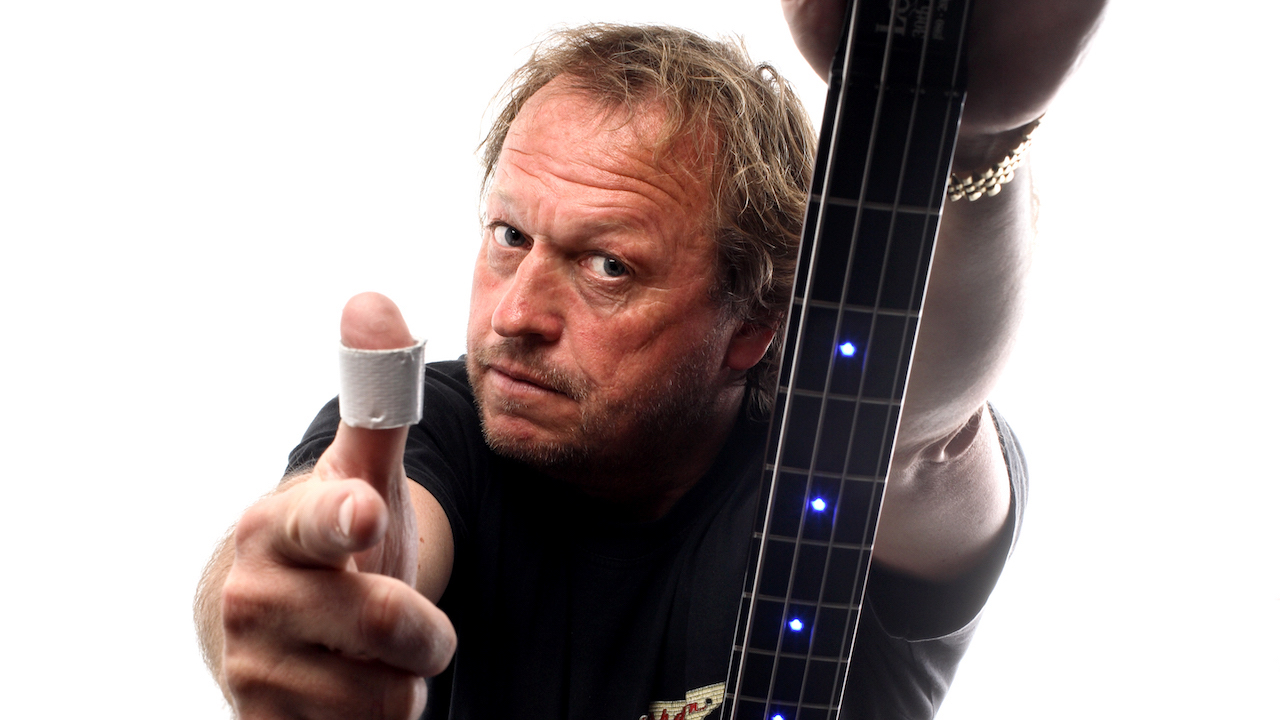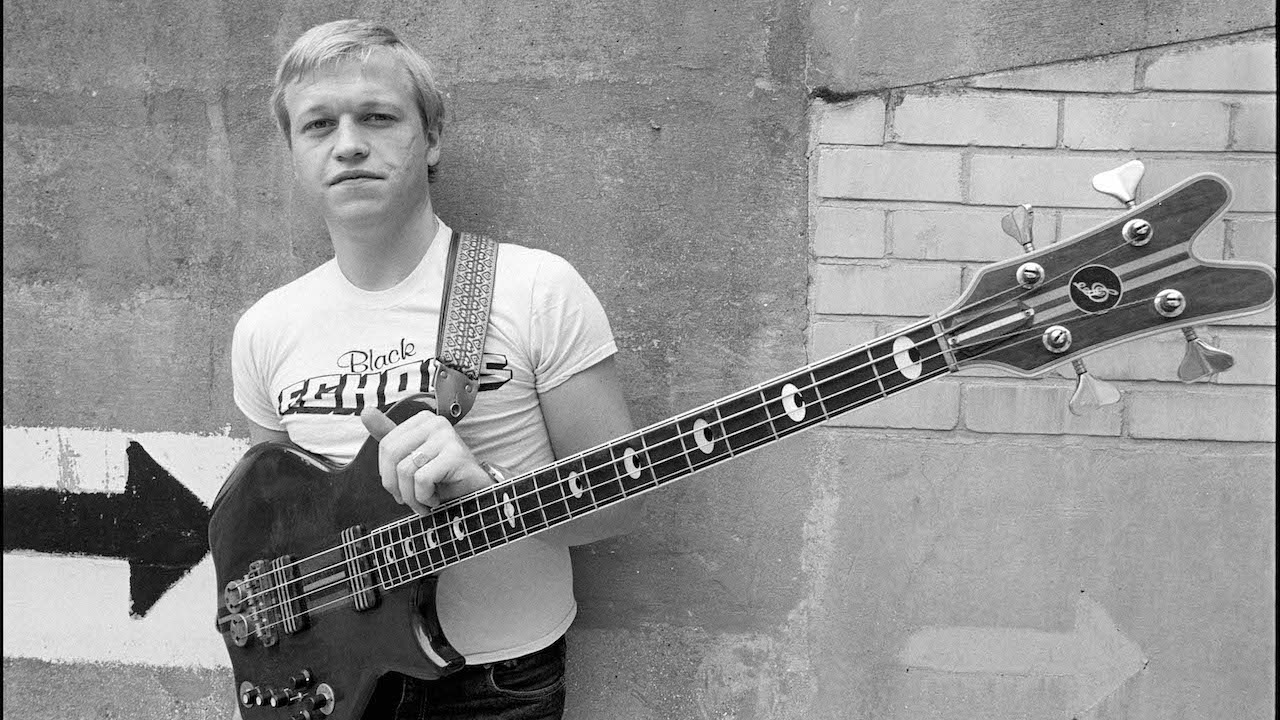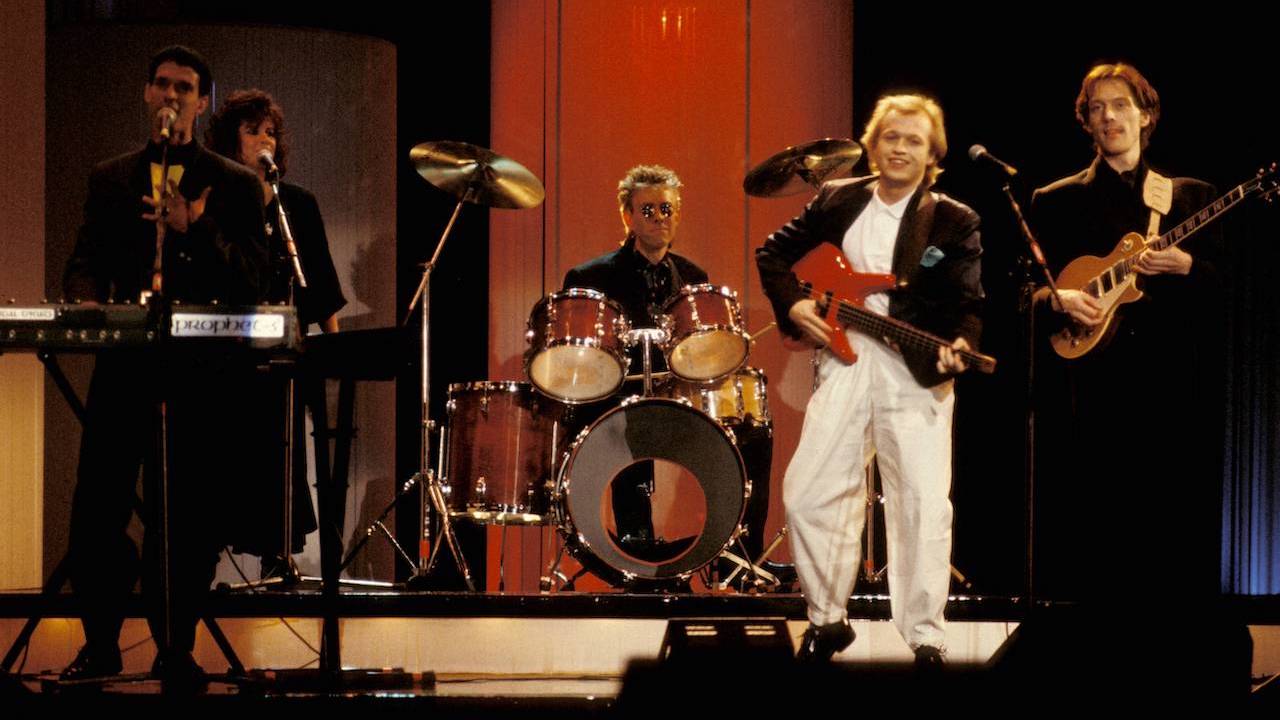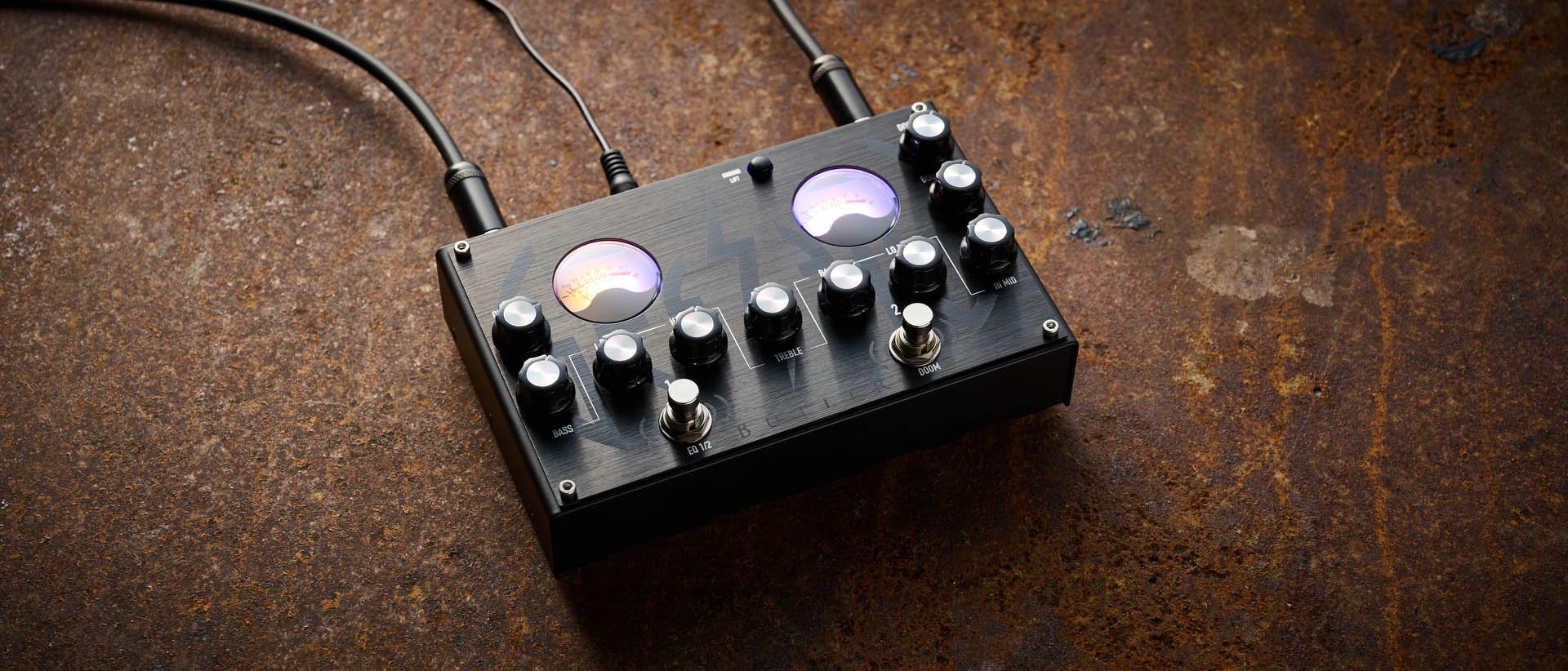Level 42’s Mark King: the man with the 3 million dollar thumb
“I was slapping the bass so hard that I completely split my thumb!”

Mark King’s hard-hitting bass pyrotechnics with Level 42 became the driving force behind many of the band’s Top 40 hits and paved the way for slap-bass playing in mainstream 80s pop.
The group notched up 20 UK Top 40 hits throughout the 80s before eventually disbanding in 1994. Four years later, King stepped back into the limelight with his solo album, One Man, followed by Trash – a collection of unused songs that King released independently before reforming Level 42 in 2001.
Having moved to London in 1979 from his home on the Isle of Wight, Mark, along with Mike Lindup and fellow islanders, brothers Phil and Rowland ‘Boon’ Gould, played their first gigs as Level 42 and were soon signed to a small independent label. "I remember it well," says Mark of the group’s formative years. "We weren’t sure if Level 42 was going to go anywhere, and Phil Gould, the drummer, and I kept flirting with other bands; this was back in 1980."
As it happened, just a year later, in 1981, Mark and co signed a major record deal with Polydor Records. "We were lucky enough to be starting out at a time when record companies were handing out five-year contracts, which broke down as a three-album deal plus the option of another two, so at the very least you would get a chance to make three albums. With any band that’s just starting out you’ve got to try and feel your way in and find things out for yourself, but when we started all we were interested in was making good music."

The band’s 1981 single, ‘Love Games’ (taken from the album of the same name), became Level 42’s first Top 40 hit and led to the band’s debut on the BBC’s Top Of The Pops. "I can’t overemphasise how important Top Of The Pops was back then," recalls Mark. "There was no MTV or any other satellite music stations: you’re talking about one terrestrial TV channel that played a pop show every Thursday night, and that was it."
The band’s fourth album, 1983’s Standing In The Light, marked the beginning of the group’s most successful era, sparked by the single ‘The Sun Goes Down (Living it Up)’ which charted at number 10. "Even though the album had been produced by Verdine White and Larry Dunn from Earth, Wind and Fire, at the time we were still below radar, especially with the record company," says Mark. "We were still lugging our own gear around! Then we got the Top 10 single and everything changed.”
We were still lugging our own gear around! Then we got the Top 10 single and everything changed.
The 1984 follow-up, True Colours, saw the track ‘Hot Water’ break into the Billboard Top 100 in America, before the more mainstream World Machine elevated the band to true international status. "By 1985 we were five years into the band and it had become clear to us that if we wanted to carry on doing what we were doing, touring and selling records, we had to have the backing of the record company, and the record company were looking for a hit record, so we had to come up with a hit.
"When we set out to record the World Machine album we made an effort to appeal to a wider audience and came up with ‘Something About You’, and that really made the record company take notice.”
The band’s success came to a head in 1986, with the single ‘Lessons In Love’ peaking at number three in the UK charts.
All the latest guitar news, interviews, lessons, reviews, deals and more, direct to your inbox!

King’s trademark bass guitar style incorporates continuous 16th-note slap grooves played with a combination of slaps, pops, hammer-ons and fretting-hand slaps.
"My technique is built on the linear idea of drumming where it’s not just the right hand that’s drumming the notes out – that’s more in the style of the American slap bassists, which is why a lot of US funk is more economic. The way I play, with both hands going, you end up with a more polyrhythmic feel."
Yet this rapid, hard-hitting playing style isn’t without its rigours, and avid fans may have noticed Mark taking to the stage with a length of gaffer tape wrapped around his thumb. A thumb which, at the height of his fame, was insured by Polydor records for £3million.
"It’s amazing how hard you hit the strings when you slap. Back in the early days I was slapping the bass so hard that I completely split my thumb and that was a real problem. We’d played thirteen back-to-back shows in Holland and by the end of it I was bleeding all over my bass. The Dutch nicknamed me the Butcher! Ever since then I’ve always played with a strip of gaffer tape around my thumb to stop it ever happening again.”
In this video Mark King explains his bass playing techniques.
Echoing the likes of Stanley Clarke and Louis Johnson, King’s slapped-bass grooves have directed Level 42 to record sales of over 30 million since starting out in 1980 and he remains one of the UK’s most prominent bass exports.
"Forty years on it all seems to pale into insignificance," laments Mark. ‘It was a long time ago, but at the same time it seems like only yesterday."
For the latest news from Level 42, visit www.level42.com.

Nick Wells was the Editor of Bass Guitar magazine from 2009 to 2011, before making strides into the world of Artist Relations with Sheldon Dingwall and Dingwall Guitars. He's also the producer of bass-centric documentaries, Walking the Changes and Beneath the Bassline, as well as Production Manager and Artist Liaison for ScottsBassLessons. In his free time, you'll find him jumping around his bedroom to Kool & The Gang while hammering the life out of his P-Bass.
